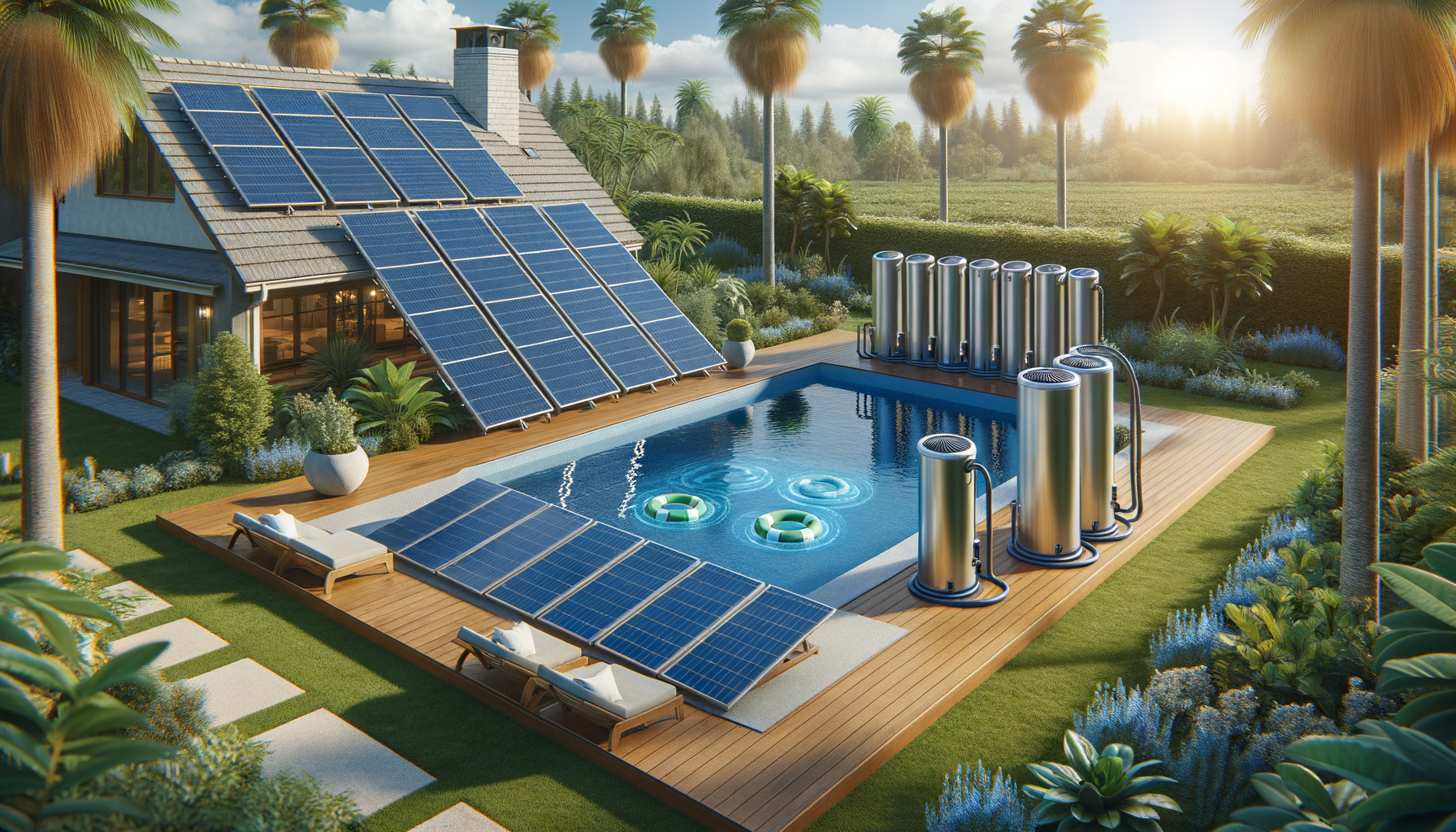Introduction to Solar Pool Heating Systems
As the demand for sustainable and energy-efficient solutions grows, solar pool heating systems have emerged as a popular choice among environmentally conscious pool owners. These systems utilize solar panels to capture and convert sunlight into heat, which is then transferred to the pool water. This method not only reduces reliance on fossil fuels but also significantly cuts down on energy costs. In this section, we will explore how solar pool heating systems work and why they are becoming an integral part of modern pool maintenance.
Solar pool heating systems consist of a few key components: solar collectors, a filter, a pump, and a flow control valve. The process begins with the pool water being pumped through a filter and then directed to the solar collectors, usually mounted on rooftops or in open areas with maximum sun exposure. As the water flows through the collectors, it is heated by the sun’s energy before being returned to the pool. This cycle continues until the desired temperature is reached.
One of the main advantages of solar pool heating is its environmental impact. By utilizing the sun’s energy, homeowners can significantly reduce their carbon footprint. Additionally, solar pool heaters can extend the swimming season by maintaining comfortable water temperatures even during cooler months. This makes them not only an eco-friendly choice but also a practical one for those looking to maximize their pool usage throughout the year.
Benefits of Solar Pool Heating Systems
Solar pool heating systems offer a range of benefits that make them an attractive option for pool owners. Firstly, they provide a cost-effective solution to pool heating. While the initial investment may be higher compared to conventional heating systems, the long-term savings on energy bills often offset the upfront costs. Solar energy is free, and once the system is installed, operational costs are minimal.
Another significant benefit is the environmental advantage. Solar pool heaters produce zero emissions, contributing to cleaner air and a healthier planet. This aligns with the growing trend towards sustainable living and reducing our dependence on non-renewable energy sources. Furthermore, solar pool heating systems are low maintenance. With fewer moving parts and no fuel combustion, these systems require less upkeep and have a longer lifespan than traditional heaters.
For those concerned about aesthetics, solar collectors come in various designs and can be integrated seamlessly into the existing architecture of a home. They can be mounted on rooftops or installed on the ground, depending on the available space and sun exposure. This flexibility allows homeowners to choose a setup that complements their property while still reaping the benefits of solar energy.
Comparing Solar Pool Heaters to Traditional Options
When considering pool heating options, it’s essential to compare solar pool heaters to traditional systems such as gas heaters and electric heat pumps. Each has its pros and cons, and the choice ultimately depends on individual preferences and circumstances.
Gas heaters, for instance, are known for their rapid heating capabilities, making them suitable for those who use their pools infrequently and require quick temperature adjustments. However, they are less energy-efficient and can result in higher operational costs due to fluctuating fuel prices. In contrast, solar pool heaters, while slower to heat, offer consistent temperature maintenance without the ongoing fuel expenses.
Electric heat pumps are another alternative, known for their efficiency in moderate climates. They operate by extracting heat from the air and transferring it to the pool water. While they are more energy-efficient than gas heaters, they still rely on electricity, which can lead to substantial energy costs over time. Solar pool heaters, on the other hand, harness free solar energy, making them a more cost-effective choice in the long run.
Ultimately, the decision between these systems will depend on factors such as climate, pool usage, and budget. However, for those committed to sustainability and reducing their carbon footprint, solar pool heating systems present a compelling option.
Installation and Maintenance of Solar Pool Heating Systems
Installing a solar pool heating system requires careful planning and consideration of various factors to ensure optimal performance. The first step is to assess the available space for solar collectors. Ideally, they should be placed in a location that receives maximum sunlight throughout the day, such as a south-facing roof or open ground area.
Once the location is determined, the next step is to choose the right size and type of solar collectors. The size will depend on the pool’s surface area and the desired temperature increase. Generally, the surface area of the solar collectors should be at least 50-100% of the pool’s surface area to achieve efficient heating. Consulting with a professional installer can help in making the right choice.
Maintenance of solar pool heating systems is relatively straightforward. Regular checks should be conducted to ensure that the solar panels are clean and free from debris, which can obstruct sunlight and reduce efficiency. Additionally, the pump and filter should be inspected periodically to ensure they are functioning correctly. With proper care, a solar pool heating system can last for 15-20 years, providing reliable and eco-friendly heating throughout its lifespan.
Conclusion: Making the Solar Choice
Investing in a solar pool heating system is a decision that aligns with both environmental responsibility and economic sense. By harnessing the sun’s energy, homeowners can enjoy extended swimming seasons, reduced energy bills, and a smaller carbon footprint. While the initial investment may seem daunting, the long-term benefits and savings make it a worthwhile consideration for any pool owner.
As we move towards a more sustainable future, solar pool heating systems represent a step in the right direction. They offer a practical solution for those looking to enjoy their pools year-round without compromising on environmental values. Whether you’re a seasoned pool owner or contemplating a new installation, exploring the possibilities of solar energy could be the key to unlocking a more sustainable and enjoyable swimming experience.




Leave a Reply